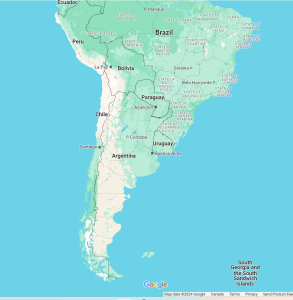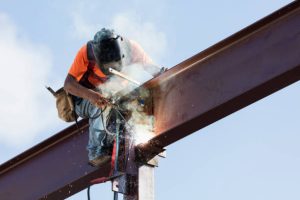Case Story 3: Luis

Initially he was sent to Toronto and lived in resettlement housing for a year. Luis’ experiences in the concentration camp in Chile were traumatizing, including torture and the disappearing of some of his friends. During his first few years in Canada he was suffering from what we would now identify as post-traumatic stress disorder (PTSD) including, nightmares and irregular sleep as well as depression and social isolation. In the mid-1970s there was still a great deal of stigma regarding mental health challenges and Luis did not know how to seek support or whether he could afford it. He had secured work as a welder with a construction company and slowly began to improve his English on the job but tended to interact outside of work primarily with other Spanish-speaking newcomers.
In 1982 at a Chilean cultural festival at a community centre in Toronto, Luis met Susan the friend of one of his co-workers’ wives. Susan was a social worker who was fluent in English, French and Spanish. She was originally from Halifax but had spent time volunteering in Central America. When they met, Susan was working with refugee support services in Toronto and had knowledge of the trauma many refugees coped with. She was able to connect Luis with a support program. He rejected the one on one counseling because he could not communicate well about personal issues in English; but he participated in a peer support group for Spanish speaking newcomers with experiences of trauma. After dating for 6 months Luis and Susan moved in together and shortly after Susan became pregnant. They decided to get married and move to Nova Scotia to be closer to Susan’s family. The move ended Luis’ participation in the trauma support group. He did not continue with anything similar in Halifax due to language barriers.
Their daughter Linda was born in 1983 in Halifax. Susan’s parents were both public school teachers and were very welcoming to Luis and supportive grandparents. Luis and Susan spoke Spanish at home and their daughter Linda became fluent in both Spanish and English. Sometimes Linda would help translate labels, instructions, or new articles for her father as his reading in English was not as advanced as his conversation skills. The Spanish speaking community in Halifax was very small and Luis missed the food and sense of belonging that he had found in Toronto. He also missed his own parents. In 1991 after Pinochet was ousted Luis returned to Chile with Linda and Susan to visit his parents. It was a difficult trip for him emotionally and he did not return to Chile after that. Both Susan and Luis’s parents passed away in the early 2000s and their extended family connections were very limited. Susan had a strong friendship network but Luis primarily relied on her and his co-workers for social connection.
Luis retired in 2016 two years after his wife Susan passed away. His daughter Linda studied nursing at Dalhousie University, but after her mother’s passing, she took a job in Alberta where she met her husband and she decided to settle there. Five years ago Luis moved out of the small house he had lived in with his wife to save money. After his retirement he lived on a fixed income.
Socio-economic Context:
Luis comes from a working class family background in Chile. His father was a mechanic and his mother a hairdresser. Luis had 2 older brothers both of whom disappeared during the Pinochet regime. Luis worked in the construction industry as a welder for his entire careers. He was active in his union and mentored apprentice and journeymen welders throughout his career. His wife, Susan, was from a middle-class household, where both her parents were elementary school teachers in Halifax. Susan went to university and received a Bachelor of Social Work. She worked for a provincial government agency for most of her career.
Significant Relationships:
Susan, Luis’ wife of 30 years, was his most significant relationship and her loss 10 years ago led him to become more socially isolated. Luis also has a daughter in her early 40s, Linda, Who is a nurse. Linda lives in Calgary with her husband and 2 children. Linda talks to her father on the phone once a week but is only able to visit in the summer. Luis will sometimes have Linda on Facetime on the cellphone that she got him when he goes to doctor’s appointments so that she can participate in the appointment. Luis has a few friends in his public housing complex. He has dinner once a month with one older couple on his floor named Joan and Harry.

Health Journey Narrative:
Luis had always been physically active in his youth. He enjoyed football (soccer) and hiking and had few health problems. He joined a community soccer team in Nova Scotia and played on weekends into his mid 40s. After his time in the concentration camp he experienced symptoms of PTSD including difficulty with sleep and increased anxiety. These issues eased somewhat over the years but would occasionally remerge.
At different points while Luis was still working, he suffered from acute respiratory infections and had to be hospitalized for pneumonia twice at age 50 and 55. During the COVID-19 pandemic he spent a lot of time isolated in his apartment and was vigilant with mask wearing when interacting in any other setting. Within the past year he has been less rigid about masking in private social contexts but still wears a mask in public settings. He is no longer comfortable shaking hands and prefers to nod greetings instead.
Over the past 10 years Luis’ mobility has decreased significantly. He assumed it was just regular aging and did not share these changes with his doctor. Luis was skeptical that doctors could support him and felt that they may dismiss his concerns the same way they had dismissed Susan’s throat pain. He spent a lot of time in the hospital when Susan was ill and has negative associations with hospital care both as a result of Susan’s experience and his own experience when he was hospitalized for pneumonia. After witnessing her father’s increased frailty on a visit 3 years ago, Luis’ daughter Linda insisted that he go to the doctor. A series of tests were conducted and he was diagnosed with Parkinson’s disease.
Presenting Experience:
Luis currently lives alone in a publicly funded low rise apartment complex on Gottingen Street in Halifax. His wife of 30 years passed away 10 years ago of throat cancer. Her illness had gone undetected for years, despite many visits to the doctor regarding chronic pain. Her diagnosis at stage 4 and her rapid deterioration were very difficult for Luis and his daughter Linda. Due to precarious employment in Halifax, Linda decided to take a nursing job in Alberta and had lived there for the past 8 years. She visits every summer for two weeks.
Last summer after many months of waiting Luis was able to go and visit a Parkinson’s specialist but Linda was not there to accompany him. The specialist and his assistant were very thorough but the specialist’s demeanor was abrupt. Luis told his daughter later that felt he was treated “like a doll or a science project.” Luis felt that the specialist did not really listen when he explained his challenges, “He told me my Parkinson’s wasn’t really that bad compared to other people.” Although Luis was happy that the doctor thought he was still able to be independent, he didn’t like being compared to other people. “For the doctor it might be a less important case but for me it is important.”
Luis recently visited his doctor because he was having increasing trouble with walking and balance. His doctor recommended a walker, which Luis refused; however Luis did agree to begin using a metal cane with stabilizing feet on the end.
.

Patient’s Voice and Perspective:
“I have gotten a bit slower but I am fine. I can take care of myself I just need to take my time.”
“I don’t like it when people talk to me as if I am a child or always offer to help me do something as if I am helpless. I can do things myself it just takes longer.”
“My daughter wants me to move into a nursing home. That is just another kind of hospital. She thinks it will make her feel better and less worried but it will make me feel worse. People treat you differently in there.”
“My voice has gotten quieter because I feel quieter. Also the coughing is from being a welder for so long. If people were only a bit more patient and listened I would have no problems.”
Media Attributions:
Image 1: Image 1: Map Data (c) Google 2024. Chile. https://www.google.ca/maps/place/Chile/@-33.7188753,-78.7107013,4z/data=!4m6!3m5!1s0x9662c5410425af2f:0x505e1131102b91d!8m2!3d-35.675147!4d-71.542969!16zL20vMDFwMXY?entry=ttu&g_ep=EgoyMDI0MDkxOC4xIKXMDSoASAFQAw%3D%3D
Image 2: Weloc. Soccerball [image]. https://commons.wikimedia.org/wiki/File:Football_%28Soccer%29.JPG
Image 3: Kali9. Welder [image]. https://www.istockphoto.com/photo/hispanic-ironworker-welding-a-steel-girder-gm1271583090-374123871?irclickid=2vsX0o3XoxyKTNdywt33OwQVUkC1R9WP32tKyg0&irgwc=1&cid=IS&utm_medium=affiliate&utm_source=Freerange+Stock+LLC&clickid=2vsX0o3XoxyKTNdywt33OwQVUkC1R9WP32tKyg0&utm_content=258824&irpid=39115
